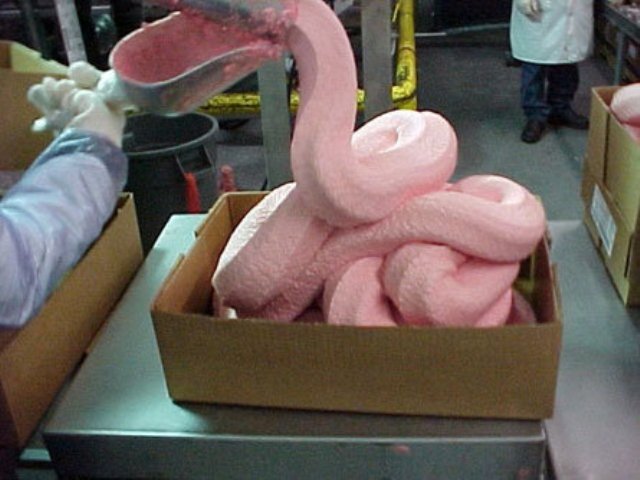"Pink Slime" Meat Rejected By McDonalds, Bought For School Lunches
By Anthony Todd in Food on Mar 7, 2012 5:40PM
Last month, McDonalds announced it would no longer buy meat treated with ammonium hydroxide. This meat, often referred to as "Pink slime" because of its sickly appearance, was made up of scraps and trimmings that, absent chemical treatment, would have been rejected. In an attempt to save money, McDonalds and other fast food restaurants had been reincorporating those scraps back into food, after treating them with chemicals. Unfortunately, the slime had very high rates of infection with food-bourne illnesses. After a public outcry, McDonald's stopped using it. So, what to do with all of that perfectly terrible meat? Sell it to the government.
Despite the constant news coverage and hand-wringing about fast food restaurants in schools and childhood obesity, the national school lunch program still must have pretty low standards. The program has purchased 7 million pounds of the pink slime to serve in schools across the nation. Even better, this comes less than six weeks after the release of new school lunch guidelines designed to make foods healthier and safer. As it turns out, the USDA has been buying this stuff for years, and there's no indication they are going to stop.
Microbiologist Carl Custer, speaking to The Daily, referred to the product as "Soylent Pink," arguing that it had little to no nutritional value. Other scientists told The Daily that they were pressured to approve the produce with minimal safety evaluations, which is particularly problematic given the high incidence of Salmonella, E. Coli and other contaminants present in the treated meat byproduct.
We understand the importance of keeping costs down in school lunch programs, but this is an example of the federal government working against itself. If McDonalds and Taco Bell (hardly paragons of food safety) don't think this stuff is clean enough to eat, the federal government shouldn't be buying it - and they should dispose of what they have bought, rather than serving it to the nation's poorest kids.
